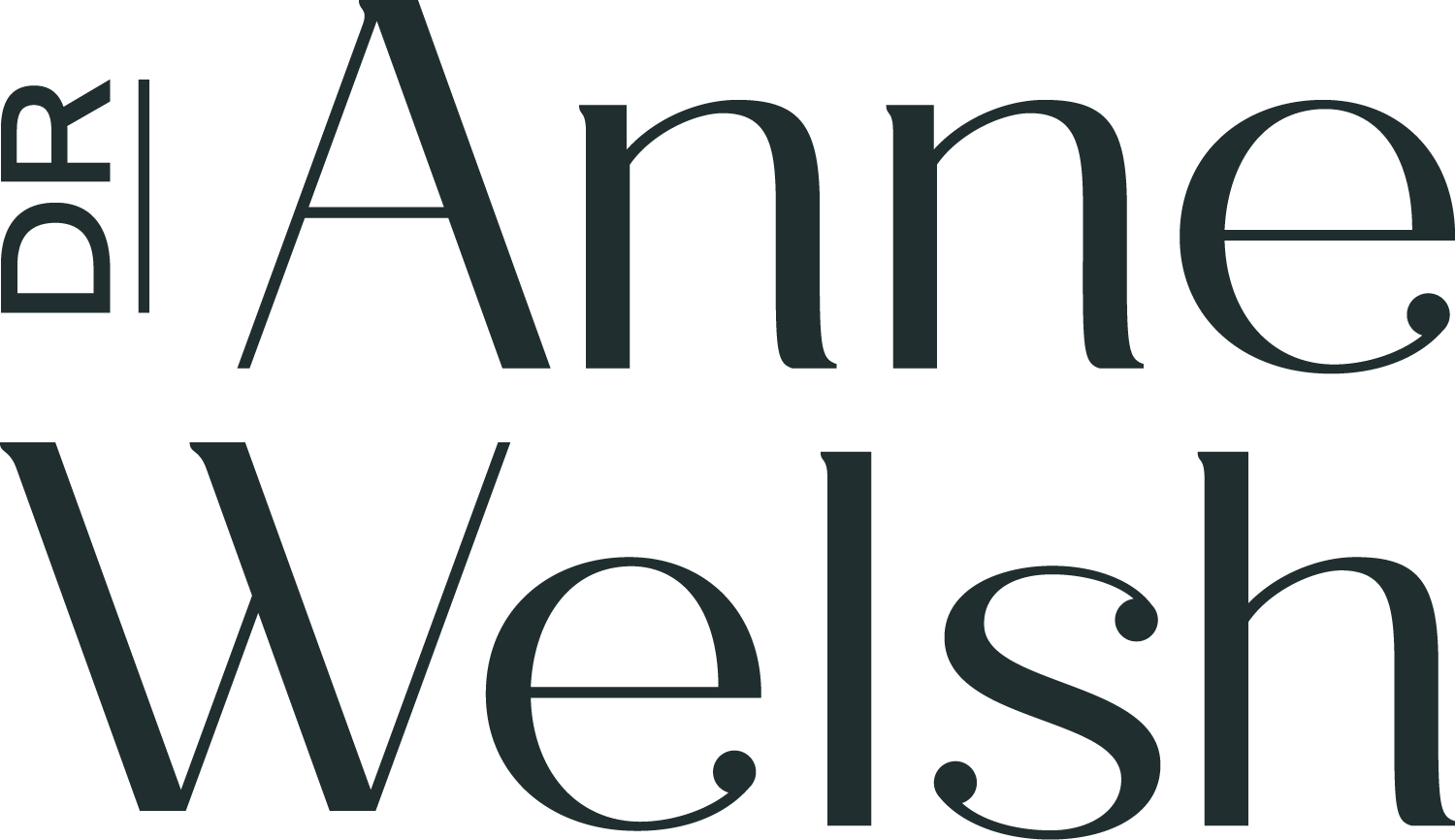Hand the Guilt Back: What Science Really Says About Working Mothers
By Dr. Anne Welsh
When my first child was little, I was wracked with guilt about working.
I had grown up with a working mother, and I thought it was cool. I was proud of her big job. I assumed I’d feel the same strength when it was my turn.
But in those early months, I missed my baby. And missing her quickly morphed into guilt. The internet took that tiny kernel of doubt and fueled it into a roar:
If I wasn’t home full-time, I was harming my child.
And I hear the same from so many women I work with.
The cultural noise around “good mothers stay home” is still deafening.
Suddenly, my confidence gave way to questions.
Was I selfish? Was I sacrificing her well-being for mine?
Could I really call myself a good mother if I wasn’t with her 24/7?
But the truth is that cultural script is outdated. And the science? It tells a very different story.
What the Research Says
The good news is, modern developmental science tells a very different story.
Attachment research:
Secure bonds come from responsive, consistent care, not constant presence.
Children can form healthy attachments with multiple caregivers.
Quality of interaction matters far more than quantity of time.
(NICHD Early Child Care Research Network, 1997–2010)
In other words, connection, not constant availability, builds secure attachment. When you respond with warmth, reliability, and emotional presence, your child’s brain registers safety, even if you’re not physically there every moment.
Harvard Business School study (50,000 adults across 25 countries):
Daughters of working mothers were more likely to be employed, earn higher wages, and hold leadership roles.
Sons of working mothers spent more time on childcare and housework.
(McGinn, Castro & Lingo, 2015)
That ripple effect is powerful. Children don’t just watch what we say, they absorb how we live. When mothers model engagement, ambition, and fulfillment, they shape what the next generation believes is possible.
No harm to long-term well-being:
A broader analysis (100,000+ adults in 29 countries) found no difference in adult happiness between those whose mothers worked vs. stayed home.
(McGinn et al., 2015)
Meta-analyses on maternal employment:
No negative effects on child development when childcare is stable and responsive.
In fact, working mothers are linked to:
Higher academic achievement
More egalitarian gender attitudes
Stronger emotional and social skills
(Galinsky, 2006; Brooks-Gunn et al., 2010)
Even more encouraging, these benefits tend to appear across cultures and income levels when children receive emotionally attuned care, whether from parents, caregivers, or teachers. The stability of love matters far more than its setting.
Global comparisons:
In Sweden, where 80% of mothers work, children report some of the highest levels of well-being worldwide.
(OECD Family Database, 2020)
It’s not work itself that strains families; it’s the lack of social support, affordable childcare, and flexible systems that make combining the two harder than it should be.
The myth that “daycare damages children” is based on outdated or misapplied research from the 1980s and not what we know today.
Current neuroscience and attachment studies paint a much more nuanced picture: children thrive when caregivers, including working mothers, are emotionally present, not endlessly available.
Reflection Tool: Hand the Guilt Back
Here’s a mindset practice I use, and often share with clients, when guilt starts to creep in:
Pause and ask yourself these three questions:
Do I actually believe this?
What does the data say?
Whose voice is this.. mine, or the culture’s?
If the guilt isn’t truly yours, hand it back.
Hand it to the outdated study.
To the clickbait headline.
To the cultural script that still hasn’t caught up.
You can even visualize it: picture the guilt as a physical weight you’ve been carrying, and imagine setting it down. This symbolic act helps your nervous system release unnecessary tension and reclaim focus.
Because guilt doesn’t serve you, and it doesn’t serve your kids.
And what does serve them?
➤ A mother who feels fulfilled.
➤ A mother who is present in the ways that count.
➤ A mother who models that love and ambition can coexist.
When you show up to your work, and your family, from a grounded, integrated place, you’re not divided between two worlds. You’re expanding what motherhood means.
You don’t have to choose between being a great mom and a great leader.
You already are both.
So when guilt starts to whisper that you’re not enough — pause, breathe, and remember: the data tells a different story. Your work, your love, and your presence are not in conflict. They’re connected. And when that old narrative tries to creep back in, you know what to do.
Hand the guilt back.
Warmly,
Dr. Anne
Sources:
Brooks-Gunn, J., Han, W. J., & Waldfogel, J. (2010). First-year maternal employment and child development in the first seven years. Monographs of the Society for Research in Child Development, 75(2), 7–9. https://doi.org/10.1111/j.1540-5834.2010.00562.x
Galinsky, E. (2006). The effects of parental employment on children: Summary of research evidence. Families and Work Institute. https://www.familiesandwork.org/
McGinn, K. L., Castro, M. R., & Lingo, E. L. (2015). Learning from mum: Cross-national evidence linking maternal employment and adult children’s outcomes. Harvard Business School Working Paper. https://www.hbs.edu/faculty/Pages/item.aspx?num=50138
NICHD Early Child Care Research Network. (1997–2010). The NICHD Study of Early Child Care and Youth Development. National Institute of Child Health and Human Development. https://www.nichd.nih.gov/research/supported/seccyd
Organisation for Economic Co-operation and Development (OECD). (2020). OECD Family Database.https://www.oecd.org/els/family/database.htm
Want support in figuring out
what’s right for you in this season?
I offer therapy, executive coaching, and group coaching to help women just like you.
Connect with me and let’s start the conversation.


